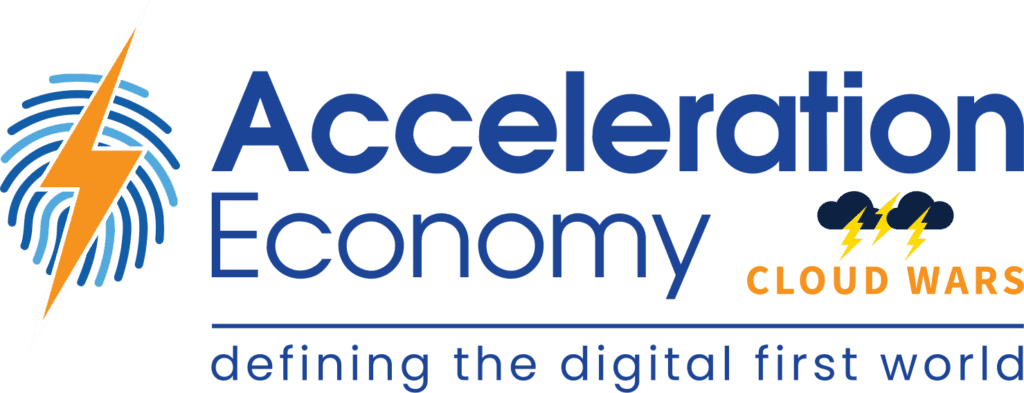Blood
Salesforce Price Hikes Are Blood in the Water for Oracle and SAP
While Salesforce has some very solid rationale for raising prices by 9% across many of its product lines, its announcement of those imminent increases id likely to inspire archrivals SAP and Oracle to launch aggressive campaigns to cut into Salesforce’s massive market share.
I admire the courage and confidence displayed by Marc Benioff in forging these increases, which go into effect in August and will average about 9%.
That confidence has two sides to it:
- Confidence that customers already cutting back sharply on spending will accept the larger monthly bills from Salesforce.
- Confidence that Salesforce can fend off any and all attacks that are likely to come from top competitors Oracle and SAP, both of which have said their approaches to CX are superior to Salesforce’s longtime focus on CRM.
Gain insight into the way Bob Evans builds and updates the Cloud Wars Top 10 ranking, as well as how C-suite executives use the list to inform strategic cloud purchase decisions. That’s available exclusively through the Acceleration Economy Cloud Wars Top 10 Course.
I believe Benioff and Salesforce have excellent justification for moving their prices upward by an average of 9% on Sales Cloud, Service Cloud, Marketing Cloud, Industries, and Tableau. On top of the reasons offered by Salesforce that I’ll list below, there’s also the significant factor of relentless inflation over the past few years. And I think it’s very fair for a company that promises that its products can be a deflationary force to charge more for solutions that are improved constantly.
Here’s how Salesforce explained its thinking behind the price hikes:
- It’s been seven years since the last price increases
- In those seven years, Salesforce said it has delivered 22 new releases and thousands of new features
- It has invested more than $20 billion in R&D
- “In just the last few months alone, Salesforce has introduced AI Cloud, Einstein GPT, Sales GPT and Service GPT, and more“
No, I don’t blame them one bit for raising their prices— but as is so often the case, timing is everything. Salesforce’s fiscal Q2 ends on July 31, so perhaps Benioff and crew are figuring that by disclosing that the price hikes are coming, some — many? — customers will approve deals that will close by July 31. That would allow the customers to capitalize on the “old” pricing, and it would trigger for Salesforce a pop in its end-of-quarter revenue.
But I also expect to see a flurry of counterpunches from SAP and Oracle, whose leaders must bristle every time they see Salesforce post that graphic showing that its CRM market share is as big as those two plus Microsoft combined.
Oracle and SAP are looking to position their CX offerings as superior to those of Salesforce by virtue of their adjacency to the ERP and supply chain apps and data that are central to the app businesses of those rivals. And, Oracle in particular has been attempting to position Salesforce as a tool that tells sales managers what’s happening in the field, while Oracle CX can actually help salespeople sell more.
Via email, I asked SAP’s Ritu Bhargava, president & chief product officer for SAP Industries & CX, about the competitive dynamics in the CX/CRM space. Here’s her reply— and you’ll note that she speaks very directly about SAP’s ability to enable customers to engage with “disparate data insights from across the entire enterprise.” That’s a dramatic difference from what Salesforce can offer since it does not offer ERP or HCM solutions, and that distinct differentiation will no doubt be a factor that SAP’s field organization will hammer home to Salesforce customers evaluating the imminent price increases.
“We believe companies will continue to do business with partners who offer real value,” Bhargava wrote. “Today’s business leaders need intelligence and agility to meet rapidly changing customer expectations and market conditions. What differentiates SAP and our intelligent CX solutions in this crowded field is our ability to deliver value by bringing together disparate data insights from across the entire enterprise. Whether consumers are buying or subscribing, or they already own or use a product or service, SAP provides our customers with solutions that align to every touchpoint of the consumer journey and delivers amazing customer experiences, every time.”
Final Thought
As I’ve discussed in detail over the past several months, Benioff has pivoted his iconic company from being a growth player for more than 23 years to becoming one primarily focused on margins and profits. If Benioff can get these price increases to stick for many or most customers, then his revenue will get a nice boost as well.
But that “if” is not going to be easy for Benioff and Salesforce to overcome. I don’t expect it to have a material impact between now and the end of the month — which is the close of Salesforce’s fiscal Q2 — but I surely expect it to ignite some intensified battles with SAP and Oracle for the hearts, minds, and wallets of customers.

